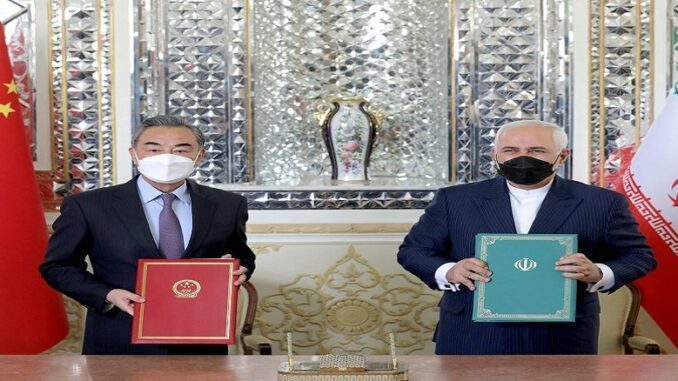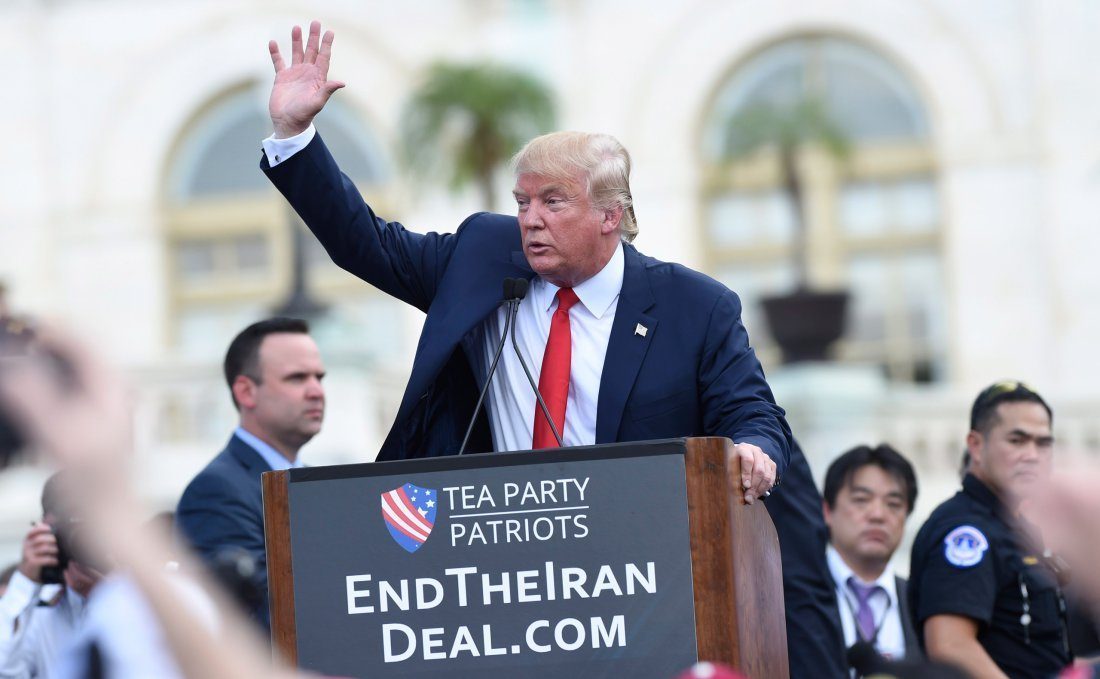
The agreement was signed in Tehran last Saturday by Iran’s Foreign Minister Mohammad Javad Zarif and China’s Foreign Minister Wang Yi.
Wang, who touched down in Tehran on Friday for a two-day visit as part of his Middle East trip, also met with President Hassan Rouhani, and Ali Larijani, a representative of the Supreme Leader Ali Hosseini Khamenei who is said to have been the point person on the 25-year accord.
The agreement is said to have been in the works since Chinese President Xi Jinping visited Iran in 2016, also agreeing to increase bilateral trade more than 10-fold to $600bn in the next decade.
No details of the agreement have yet to be officially published, but it is expected to be a sweeping “strategic accord” that includes significant Chinese investments in Iran’s key sectors such as energy and infrastructure, in addition to military cooperation.
It comes as both Iran and China are under different levels of sanctions imposed by the US.
After unilaterally abandoning Iran’s 2015 nuclear deal with world powers – that also included China – former US President Donald Trump imposed harsh sanctions on Iran that have blacklisted its entire financial system.
While saying he wants to restore the deal, President Joe Biden has so far refused to lift any sanctions, saying Iran must first act to fulfil commitments it scaled back in response to US sanctions.
China and Russia have called on the US to restore the deal by lifting sanctions, while traders and analysts say Iran’s oil exports to China have significantly increased in March despite US warnings.
Rouhani thanked Wang on Saturday for China’s stance on the nuclear deal and standing up to “American unilateralism”.
“The two countries’ cooperation to implement the JCPOA and implementing commitments by European countries is very important and can change the current situation,” he said in reference to the formal name of the nuclear deal.
The president also said Iran and China can work together to fight “terrorism and extremism in the region” in addition to economic and trade cooperation.
Wang was quoted by the president’s website as saying that maintaining the nuclear deal would mean preserving multilateralism.
“The new US administration wants to rethink its policy and return to the JCPOA. China welcomes that,” he reportedly said.
As China and Iran are approaching 50 years of official diplomatic ties, an exhibition of diplomatic documents and achievements between the two countries was opened at the foreign ministry building in Tehran on Saturday.
But the cooperation pact has also been a subject of contention inside Iran, where a discussion on its objectives and merits has divided people and officials alike.
Proponents of the deal say Iran will benefit from turning east as the US and the West adopt an increasingly hostile approach, while critics say Iran may be giving up too much in its quest to boost ties with China.
Iran and China have also cooperated on COVID-19 during the pandemic, with China donating 250,000 doses of its Sinopharm vaccine to Iran last month.
The cooperation will cover a wide range of Chinese investments in Iran’s most important sectors, including energy and infrastructure.
It is the first long-term agreement of its type to be signed by Iran with a leading world power.
It also comes at a tough time for Iran’s economy that has been devastated by United States sanctions.
The pact was signed in Iran’s capital, Tehran, on March 27, coinciding with the 50th anniversary of the establishment of diplomatic relations between China and Iran.



